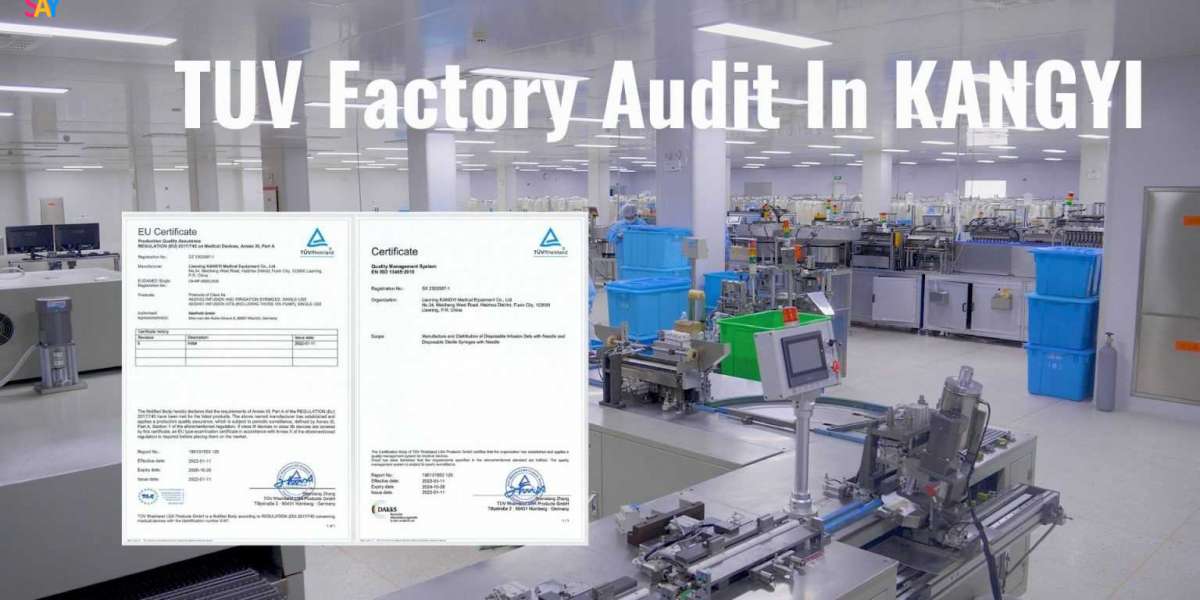In today’s highly regulated global marketplace, businesses are expected to demonstrate not just quality and efficiency but also compliance with international safety, environmental, and operational standards. One of the key processes that help companies achieve and prove this compliance is thetuv audit meaning. Renowned for their rigorous standards and credibility, TÜV audits are widely recognized around the world. But what exactly is a TÜV audit, and why does it matter so much for international certification and standards?
What Is TÜV?
TÜV stands for Technischer Überwachungsverein, which translates to Technical Inspection Association in English. Originating in Germany in the 19th century, TÜV organizations were initially created to test steam boilers and industrial equipment to ensure safety and reduce accidents. Today, TÜV has evolved into a global network of independent service companies that inspect, certify, and test products, systems, and processes in virtually every industry.
The most well-known TÜV companies include TÜV SÜD, TÜV Rheinland, and TÜV NORD. These organizations operate independently and are globally respected for their objective, third-party evaluations of compliance with international standards.
What Is a TÜV Audit?
A TÜV audit is a formal, systematic inspection conducted by TÜV-certified auditors to assess whether a company’s processes, systems, products, or services meet specific national or international standards. These audits can cover a wide range of areas, including:
Quality management systems (e.g., ISO 9001)
Environmental management (e.g., ISO 14001)
Occupational health and safety (e.g., ISO 45001)
Information security (e.g., ISO/IEC 27001)
Product safety certifications (e.g., CE marking, machinery safety, etc.)
Automotive standards (e.g., IATF 16949)
The purpose of a TÜV audit is to ensure that organizations not only comply with relevant legal and regulatory requirements but also adhere to industry best practices.
Why TÜV Audits Matter
1. Credibility and Global Recognition
One of the biggest reasons companies seek TÜV certification is its global credibility. TÜV is synonymous with trust, safety, and compliance. A TÜV-certified product or system is often seen as a mark of quality and reliability. For businesses looking to expand into international markets, having TÜV certification can serve as a competitive advantage and a passport to global trade.
2. Compliance with International Standards
TÜV audits help companies align with globally recognized standards, such as ISO (International Organization for Standardization) and IEC (International Electrotechnical Commission). This is especially critical in industries like automotive, aerospace, healthcare, and manufacturing, where regulatory compliance is non-negotiable. Failing to comply with such standards can lead to legal penalties, product recalls, or reputational damage.
3. Improved Operational Efficiency
Undergoing a TÜV audit often uncovers inefficiencies, gaps in documentation, or deviations from best practices. The audit process encourages companies to streamline operations, eliminate waste, and adopt more effective quality control procedures. This not only helps in achieving compliance but also results in cost savings and improved productivity.
4. Enhanced Customer Trust and Satisfaction
Customers and business partners are increasingly concerned with the quality, safety, and sustainability of the products and services they use. TÜV certification reassures stakeholders that a company is committed to high standards. It’s a mark that builds trust, reduces liability, and enhances brand reputation.
5. Risk Mitigation and Legal Protection
TÜV audits help identify and address potential risks—whether technical, legal, or operational—before they become critical issues. For example, in industries such as medical devices or automotive, a single defect can have serious consequences. Regular auditing ensures that safety protocols are followed, reducing the risk of failure and legal action.
6. Continuous Improvement
TÜV audits are not a one-time event. Most certifications require periodic surveillance audits and full recertification every few years. This encourages companies to maintain high standards and continuously improve their systems and processes over time, fostering a culture of excellence and accountability.
The TÜV Audit Process: Step by Step
While the details may vary depending on the scope and standard being audited, a typical TÜV audit involves the following stages:
1. Pre-Audit or Gap Analysis (Optional):
A preliminary assessment to identify areas that need improvement before the formal audit.
2. Stage 1 Audit:
An initial review of the organization’s documentation, including policies, procedures, and preparedness for the certification audit.
3. Stage 2 Audit (Main Audit):
A comprehensive on-site audit where TÜV auditors assess the actual implementation of the documented management system or processes.
4. Report and Findings:
The auditor provides a detailed report outlining strengths, weaknesses, and any non-conformities.
5. Corrective Actions:
The company addresses any identified non-conformities and submits evidence of corrective actions.
6. Certification Decision:
Once all issues are resolved, TÜV issues the certification, which is typically valid for three years with annual surveillance audits.
Choosing the Right TÜV Partner
There are several TÜV organizations, and while they operate under similar principles, each has its own specialties, global reach, and areas of expertise. Businesses should choose a TÜV partner that best matches their industry, goals, and geographic footprint.
Conclusion
A TÜV audit is more than just a checklist—it’s a powerful tool for driving quality, safety, and operational excellence. Whether a company is striving for ISO certification, entering new markets, or demonstrating product compliance, TÜV audits provide an objective, globally respected benchmark of performance. In an increasingly competitive and regulated world, partnering with TÜV for certification and auditing is not just beneficial—it’s becoming essential.
Learn more about company : https://www.linkedin.com/company/kangyi





